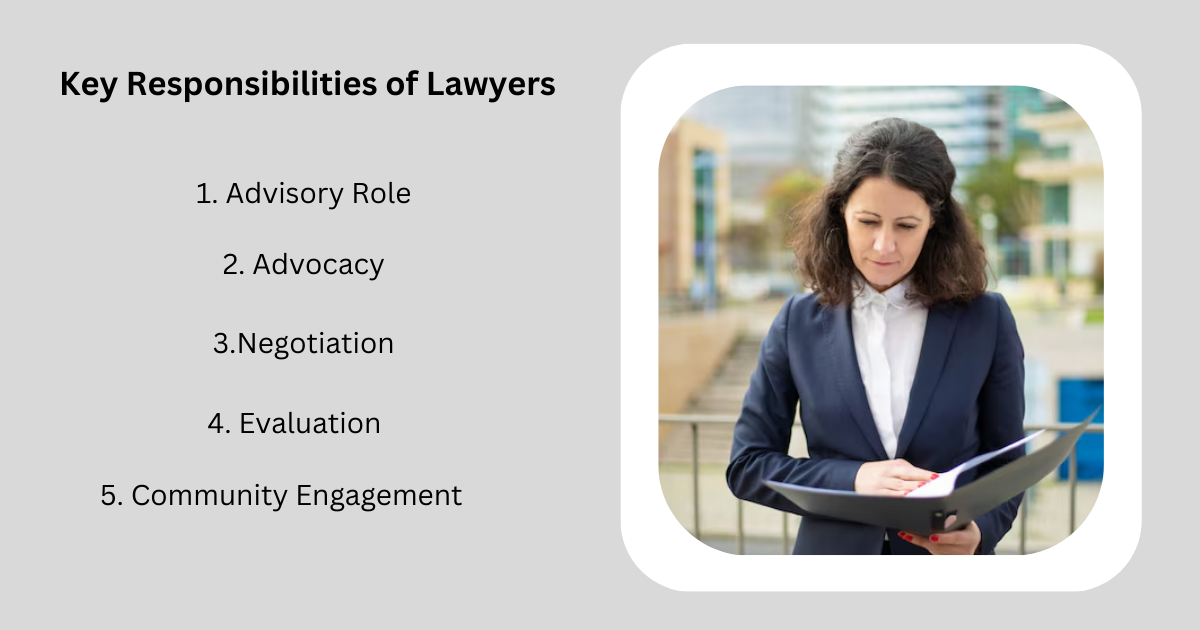In the intricate tapestry of the U.S. legal system, lawyers stand as pivotal figures, wielding significant influence over both individual lives and societal structures. This article delves into the multifaceted role of lawyers, highlighting their responsibilities, ethical obligations, and the evolving landscape in which they operate.
Understanding the Lawyer’s Role
Representative of ClientsAt the core of a lawyer’s function is their role as a representative of clients. Lawyers provide essential guidance, ensuring that individuals understand their legal rights and obligations. They advocate for their clients’ interests, navigating complex legal waters and striving to achieve favorable outcomes. This advocacy is not merely about winning cases; it encompasses a deep commitment to justice and ethical practice.
Officer of the Legal System Lawyers are also recognized as officers of the legal system. This designation carries with it a profound responsibility to uphold the integrity of the judicial process. Lawyers must act with candor and honesty, avoiding any conduct that undermines the administration of justice. They are tasked with correcting false statements made to the court and ensuring that all evidence presented is truthful and relevant.
Public Citizen Beyond their roles in courtrooms and law offices, lawyers serve as public citizens with a duty to improve access to justice. They are encouraged to engage in pro bono work, providing legal services to those who cannot afford them. This commitment not only enhances community trust in the legal system but also fosters a more equitable society.
Key Responsibilities of Lawyers

Lawyers’ responsibilities can be categorized into several key areas:
- Advisory Role: Lawyers advise clients on legal matters, helping them navigate complex regulations and potential consequences.
- Advocacy: As advocates, lawyers represent clients in various legal proceedings, employing their skills to argue on behalf of their clients’ interests.
- Negotiation: Lawyers often negotiate settlements or agreements between parties, seeking outcomes that are beneficial while adhering to ethical standards.
- Evaluation: Lawyers assess clients’ legal situations, providing insights that help inform decisions regarding litigation or settlement options.
- Community Engagement: Many lawyers take on roles as community connectors, using their expertise to resolve disputes and foster understanding among diverse groups.
Ethical Obligations
The ethical landscape governing lawyers is defined by rules that ensure they act in the best interest of their clients while upholding justice. Key ethical obligations include:
- Duty of Candor: Lawyers must be truthful in all dealings with the court and opposing parties. This includes correcting any false statements made during proceedings.
- Confidentiality: Maintaining client confidentiality is paramount. Lawyers must protect sensitive information disclosed during representation.
- Competence: Lawyers are required to provide competent representation, which involves staying informed about relevant laws and developments within their practice areas.
- Conflict of Interest: Lawyers must avoid situations where personal interests conflict with those of their clients, ensuring impartiality in representation.
The Evolving Landscape
As society changes, so too does the role of lawyers. Emerging trends such as technological advancements and shifts in public expectations are reshaping how legal services are delivered:
- Technological Integration: The rise of artificial intelligence (AI) is transforming legal practices. From research automation to document review, AI tools are enhancing efficiency but also raising questions about job security within the profession.
- Diversity and Inclusion: The legal field is increasingly recognizing the importance of diversity. Efforts are underway to ensure that law firms reflect the communities they serve, fostering an environment where varied perspectives contribute to better outcomes.
- Access to Justice Initiatives: There is a growing emphasis on bridging the justice gap for low-income individuals. Lawyers are encouraged to participate in initiatives that provide free or reduced-cost services to underserved populations.
Also Read : The Role Of A Corporate Lawyer : Protecting Your Business Interests
Conclusion
The role of a lawyer in the U.S. legal system is both dynamic and essential. As representatives of clients, officers of the court, and advocates for social justice, lawyers play a crucial part in maintaining the rule of law and ensuring equitable access to justice for all citizens. As they navigate an ever-evolving landscape influenced by technology and societal change, lawyers must remain committed to their ethical obligations while adapting to new challenges.
FAQs
- What is the primary role of a lawyer?
- The primary role of a lawyer is to represent clients by providing legal advice, advocating for their interests in court, and ensuring adherence to ethical standards.
- How do lawyers ensure ethical practice?
- Lawyers adhere to strict ethical guidelines that include duties such as candor towards the court, maintaining client confidentiality, and avoiding conflicts of interest.
- What impact does technology have on lawyers?
- Technology enhances efficiency in legal processes but also poses challenges regarding job security and necessitates ongoing education about new tools.
- Why is pro bono work important for lawyers?
- Pro bono work allows lawyers to provide essential services to low-income individuals who cannot afford legal representation, thereby promoting access to justice.
- How can diversity improve the legal profession?
- Diversity within law firms leads to varied perspectives that can enhance problem-solving and foster better relationships with diverse client bases.

